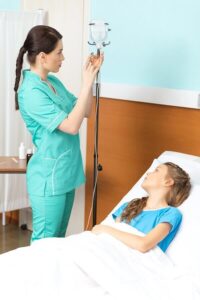The American Nurses Association estimates approximately 10% of all nurses in the United States are dependent on drugs. This estimate is staggering, though on par with estimates for the general populace. Among other things, the Texas Board of Nursing (BON) investigates complaints involving allegations of drug or alcohol abuse by nurses. The Texas BON’s primary objective is to ensure the protection of the public.
Texas Board of Nursing’s Disciplinary Sanction Policies
In its policy regarding substance use disorders and other alcohol and drug related conduct, the BON states that it believes that substance use disorders are treatable conditions, and nurses who are successfully in recovery may be able to safely provide care to patients.
The BON goes on to state: “In all situations involving an individual’s fitness to practice, the BON’s primary objective is to ensure the protection of the public. However, the BON will consider the unique facts and circumstances of each situation and may utilize various options in resolving the matter, including returning nurses to practice under structured requirements.”
To be certain, nurses who use or misuse drugs or alcohol, or suffer from addiction, can lose their nursing license. The Texas BON has authority to take disciplinary action, including revocation or suspension of a license. If you are under investigation for drug or alcohol use, it is imperative that you consult with an experienced nursing license defense attorney experienced with handling drug and alcohol use allegations with the Texas Board of Nursing.
Texas Board of Nursing Investigations
Click to contact our professional license defense lawyers today
The BON provides due process to a nurse when a complaint is filed against him or her, giving notice of the investigation and allegations. The nurse is given the opportunity to respond to the alleged conduct and to show compliance with the Texas Nursing Practice Act (NPA). An investigation typically takes 3 to 12-months, depending on the circumstances. During all stages of the investigation process, nurses have the right to be represented by an attorney.
If ultimately the evidence indicates that sanctions against the nurse are needed to protect the public, then the BON may issue an Order that will include sanctions and any requirements placed on the nurse for retention of his or her license.
Complete a Case Evaluation form now
The disciplinary authority of the BON includes the right to require a person to “abstain from the consumption of alcohol or the use of drugs and submit to random periodic screening for alcohol or drug use.” Texas Occupations Code §301.543.
The BON is further authorized to require an individual to submit to an evaluation if the Board has probable cause to believe that the individual is unable to practice nursing safely due to chemical dependency or the abuse of drugs or alcohol. Texas Occupations Code §301.4521.
The Texas Peer Assistance Program for Nurses (TPAPN)
The Texas Peer Assistance Program for Nurses (TPAPN) is a non-punitive, confidential, and voluntary program for RNs and LVN’s who need help with psychiatric disorders or substance use problems. Per service contract, TPAPN works cooperatively with the Texas BON. If you suspect you have a problem, we encourage you to reach out to TPAPN.
When Your Nursing License is at Risk
You have worked for years to become a licensed nurse in Texas. If you are under investigation by the Texas BON, your license, reputation, and career are on the line. It’s critically important that you take the complaint seriously from the start and address the allegations head-on.
For more information, please review The Do’s and Don’ts of Appearing Before the Texas Board of Nursing (BON) and our FREE eBook When Your License is Under Attack: A Survival Guide for Texas Professionals.
Our law firm helps professionals, like you, keep their licenses when those licenses are under attack by a state agency or board.
If you have received a licensing complaint, BERTOLINO LLP can help. We represent licensed professionals across the entire State of Texas. Our honest, experienced nursing license defense attorneys will fight aggressively on behalf of your professional license and reputation.
If you have questions or need to speak with an attorney about medical license defense, please call (512) 476-5757 or click here to contact us.
Call or text (512) 476-5757 or complete a Case Evaluation form






